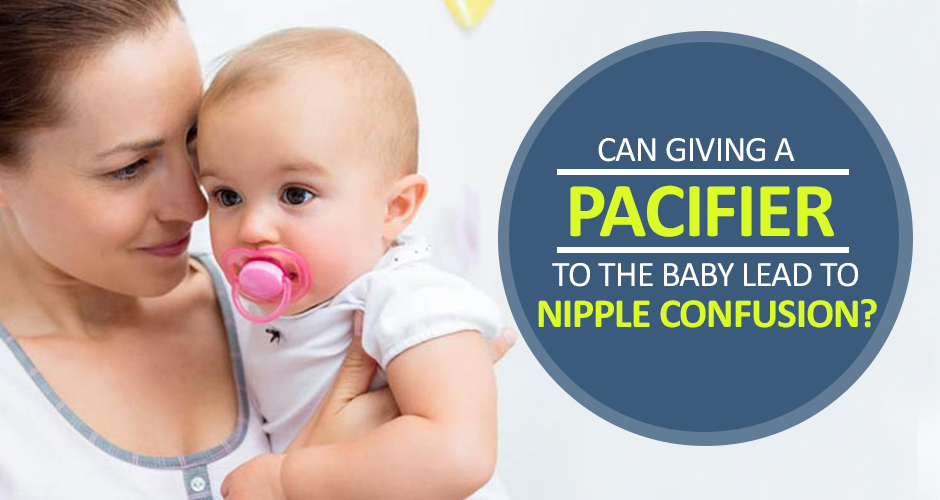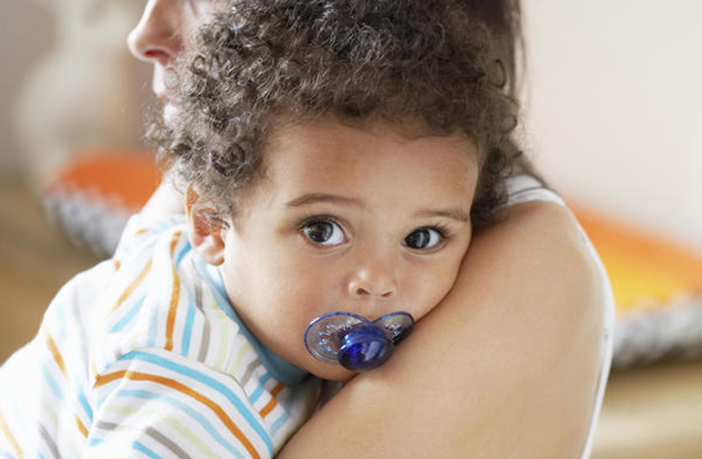
Will using the soother or a pacifier interfere with breastfeeding?
Pacifier is one of the widely sold baby products which promises to calm down babies through non-nutritive sucking. I guess there is no other product in this world which promises to calm down a cranky baby. No doubt, many moms prefer to use it. But there are moms who do not want to use it at all. But what is it about pacifiers that make the moms debate about the pros and cons of its use?
Well, one simple and straightforward answer is that it is an artificial product meant to replace nutritive sucking from the mother! So, it is a debatable topic if you should really stick a pacifier to your baby’s mouth.
Interesting fact: Pacifiers have got plenty of pet names just like babies do – soothers, binkies, dummies, etc.
Also Read: Pacifier and Soothers: A complete Guide
Why are pacifiers so popular?
Non-nutritive sucking! Sucking is a basic need for the babies. Sucking breastmilk from the mother provides nourishment and comfort for them. Pacifiers fulfill the need for comfort by offering non-nutritive sucking option for the babies. It is a very convenient way for mothers to soothe a crying baby and a very reliable option to keep your baby calm when you have to go for shopping or have to drive or just rest for some time.
What happens if you give a pacifier to your baby?
It is better to avoid giving pacifiers to your baby, especially infants. Pacifiers can lead to what we term as “nipple confusion”, an inability to distinguish between the mother’s nipple and the pacifier.
But what effect can the nipple confusion have on the babies? Well, LOTS.
Babies breastfeed for nutrition, comfort and also for the secure feeling of being held in the mother’s arms. Babies and mothers have to establish a comfortable breastfeeding relationship which happens through correct latching and sucking by the baby and through adequate milk supply and comfort given by the mother.
But when you use a substitute like pacifiers, your baby might not be able to distinguish the difference between sucking at your breast and sucking at the pacifier. This nipple confusion may result in babies feeding less or sometimes, even stopping breastfeeding altogether.
If the baby feeds less, the milk supply in the mother starts to dwindle. Or if your baby refuses to feed, it may result in accumulation of milk in your breasts leading to mastitis.
 Image Source: Parenting
Image Source: Parenting
Also Read: How to identify allergies in children
When breastfeeding and pacifiers both involve sucking, why would your baby refuse feedings if on a pacifier?
When the baby sucks, a hormone called cholecystokinin (CCK) is released. A high level of CCK makes the baby feel full and sleepy. This is the reason why most babies appear satisfied and sleep without fuss on breastfeeding. However, sucking on a pacifier also releases the hormone CCK. So, even if the baby is not fed, it will feel full and fall asleep. This can lead to a lower rate of weight gain in infants.
Use of pacifiers for babies less than 8 weeks old, can lead to latching and sucking problems in infants as they are yet to learn the technique of breastfeeding and also the milk supply in the mother is yet to be established.
Are there any advantages of giving pacifiers to babies?
Other than the obvious use of providing non-nutritive sucking, researchers have still found an advantage of using pacifiers. Several studies have found that babies who suck on pacifiers at sleep time have less risk of death due to SIDS (Sudden Infant Death Syndrome).
However, the studies specifically consider babies who suck on pacifiers at sleep time and sleep away from the mothers.There are no studies so far about the prevalence of SIDS in babies that breastfeed before sleep time and also sleep next to the mother.
Also Read: 5 Best soaps for babies (Gentle and Harmless)
What are major downsides of using pacifiers?
Apart from the breastfeeding and weight gain issues that pacifiers are known to cause, they have other major downsides. Let us know more about them:
#1. Babies who use pacifiers are known to be at greater risk of ear infections.
#2. As pacifiers are always moist, there is always a high chance of fungal growth on the surface which can lead to oral thrush in the infants.
#3. Regular use of pacifiers can affect the shape of the mouth of the infants and also affect the alignment of the teeth.
#4. It can also cause an increase in the tooth decay-causing bacteria in babies’ mouths.
#5. Regular use of a pacifier can also result in early weaning from breastfeeding.
#6. Pacifiers made of latex are known to cause severe allergic reactions in babies.
#7. It can also lead to failure in gaining weight if the baby is addicted to sucking the pacifier rather than sucking breast milk.
#8. For the mother, the milk supply can reduce if the baby prefers to suck on the pacifier rather than sucking her breast.
#9. Also, the mother will be at higher risk of developing mastitis, if the baby does not want to consume the milk from the breast and prefers sucking of the soother.
 Image Source: oswaldocruz.com
Image Source: oswaldocruz.com
Read Also: 9 Things You Should Be Doing Differently With The Second Baby
What precautions to take if you have no option but to give a pacifier?
Regardless of the downsides of using pacifiers, many mothers are compelled to use it. However, it is best to restrict the time of use so that your baby’s non-nutritive sucking needs are met, without getting into an unhealthy habit. If you are planning to use a pacifier for your baby, it is a good idea to take few precautions as given below:
#1. Avoid giving pacifier during nap-time. Babies are likely to get habituated to sucking pacifiers if they are used at nap-time.
#2. If you plan to give pacifiers at sleep time to help the baby fall asleep, go ahead. But if they fall off the mouth once your baby goes to sleep, don’t put it back in.
#3. Never use a pacifier to delay breastfeeding. Follow the same breastfeeding routine you have set and give the pacifier in between the feeds.
#4. Even if you have decided to give a pacifier to the baby, finally it is your baby who has to accept it and enjoy sucking it. If your baby doesn’t take the pacifier easily, don’t force it.
#5. Never let the baby use the pacifier after it turns one year. As the baby grows older, such habits tend to become more prolonged and difficult to wean.
#6. Always check the pacifiers for any cracks before giving it to the baby.
#7. Try to use silicone pacifiers instead of latex ones, as the former doesn’t cause allergies.
#8. Always boil the pacifiers for minimum 5 minutes in boiling water to destroy bacteria or fungus.
Dear Mommies, no doubt pacifiers offer convenience… maybe a little time to rest, a little time off from breastfeeding, an easier way to calm down your little one. But the easier ways are always not the best ways. Have patience, find other ways to calm down your baby and set up your routine so that you get time to provide non-nutritive sucking to your baby if it demands.
So, think twice before using pacifiers and be aware of all the dangers it can bring. However, if you have decided to give a pacifier to your baby, follow all the precautions mentioned so that it doesn’t lead to an unhealthy habit.
Also Read:Essential Vaccination Chart for Babies
Want to share your mommy experience with other moms through words or images? Become a part of the Moms United community. Click here and we will get in touch with you
null
null